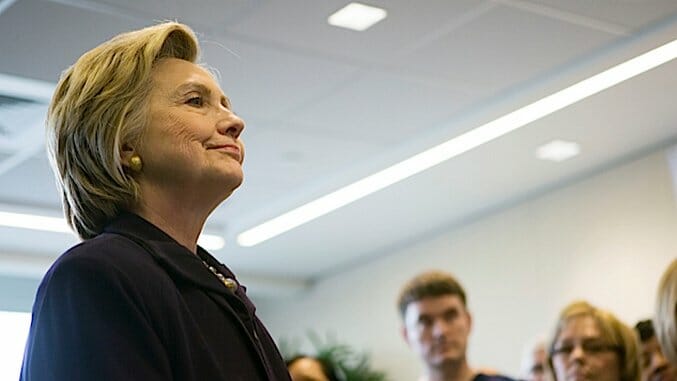They’ve been called the “post-hope” Democrats by Jacobin Magazine, but a more accurate term for many of Hillary Clinton’s supporters would be “New Republicans.” After the primary, and several more election cycles, these voters will likely end up representing America’s conservative party.
Hillary’s Democrats tend to be older and more affluent. Many have decidedly negative views of Bernie Sanders, and the kind of economic populism he is promoting. Not only are they turned off by his class-driven rhetoric — viewing it as too radical, divisive, and disruptive — they are also wary of too much government action. Clinton’s Democrats, consciously or otherwise, hold to some of the main tenets of the Reagan Revolution.
That said, these are not the New Democrats of the 1990’s, though that is where their roots are planted. Socially, they identify as progressives — hypersensitive to privilege and prejudice — but outside those issues, their ideology rests on the belief that nuance dictates moral ambiguity, and is beyond the understanding of common folk. Such sentiment gives deference to authority, and assumes that every side must have a valid argument in the face of impenetrable complexity.
On foreign policy, the New Republicans are no different from the neoliberals. In spite of a history of negative consequences, unprovoked military intervention and nation-building are deemed acceptable for the reasons previously stated.
The New Republicans are creatures of comfort — partly due to the fact, previously stated, that they’re generally older and more established. And so, triangulation against the grassroots progressive left works well on them. They tend to view an incremental approach to change as desirably pragmatic because they only really want to push so far. Many do not like the idea of “handouts,” and the kinds of changes Sanders is proposing frighten them.
This fear and distaste is why, as the years progress, the Democratic Party is going to lose these voters. Though this prediction may seem far-fetched at first glance because Hillary Clinton will likely be the nominee, Bernie Sanders is the future of the party.
The Vermont Senator has started a movement which has seen a massive influx of new voters into the party. Additionally, Bernie’s progressives are following the Tea Party model for insurgency, and running for Congress to unseat incumbent, centrist Democrats in safe districts.
On top of all that, there’s the Elizabeth Warren factor to consider. The Massachusetts Senator has become the darling of the Democratic Party, and her agenda mirrors that of Bernie Sanders more so than it does that of Hillary Clinton.
Warren and Sanders favor an overhaul of financial regulation—specifically, breaking up the big banks —while Clinton has been spreading a narrative that such action is not only unnecessary, but also misguided. Both Warren and Sanders have prioritized reforming campaign finance, but Clinton has not.
Still, both Sanders and Clinton supporters have sought endorsement from the Massachusetts Senator, as well as made cases that their candidate is the true heir to her ideas. Warren’s popularity proves the rising dominance of economic progressivism, and suggests that the Democratic party will hold together at least long enough for the establishment to be forced out over a few election cycles.
As the party transforms, it is likely the rhetoric used will grow sharper, and the candidates more, for lack of a better word, ideological — more class-oriented. That will drive Clinton’s Democrats away — just like how Civil Rights drove away the southern Dixiecrats.
We tend to understand the words “liberal” and “conservative” in terms of the major issues of the times. For the past 50 years social issues have largely defined those classifications, as well as driven political shifts. However, with the Culture War essentially won by the left (though there are still plenty of battles to fight) issues of economic and political inequality are coming to define our modern era. In fact, we are seeing a realignment. These issues will serve as the new lens through which we understand our political spectrum.
As time goes on, Hillary Clinton’s position on campaign finance reform and economic regulation will come to be associated with “conservative” and Bernie Sanders’ agenda with “liberal.” Assuming that the two major political parties maintain their current names and respective sides of the aisle, it is a safe bet to say that Clinton’s Democrats are tomorrow’s Republicans.
